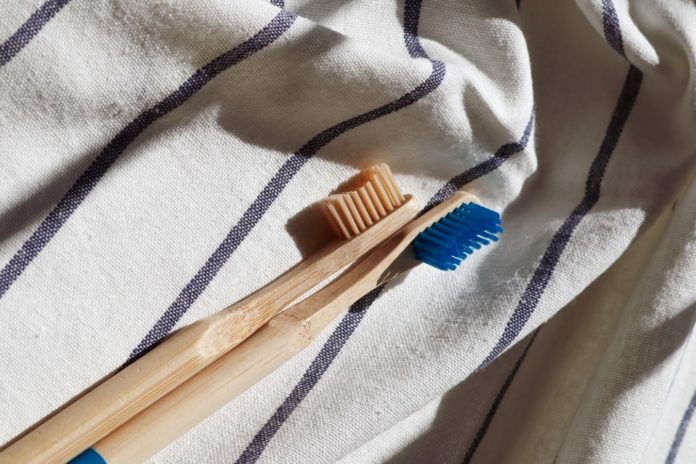While the medical community may not be able to pinpoint exactly what causes dementia or Alzheimer’s, and no cure is available, new research helps us get closer to connecting certain factors to increased rates of these diseases.
The Link Between Periodontal Disease and Dementia
One compelling link being researched is the one between periodontal, or gum disease, and dementia. In one study published in the journal Science Advances, researchers “analyzed brain tissue, spinal fluid, and saliva from Alzheimer’s patients — both living and deceased — and found evidence of P. gingivalis. Gingipains, the toxic enzyme secreted by P. gingivalis, were found in 96 percent of the 53 brain tissue samples examined, with higher levels detected in those with the pathology and symptoms of Alzheimer’s disease.” [1] Mark I. Ryder, professor of Periodontology at UCSF, stated that “the presence of P. gingivalis increased the production of amyloid beta, a component of the amyloid plaques whose accumulation contributes to Alzheimer’s. The study confirmed via animal testing that P. gingivalis can travel from the mouth to the brain and that the related gingipains can destroy brain neurons.” [2]
This is an important development because it gives one more contributing factor that we may be able to control if there is early intervention. In fact, according to a study published in the European Journal of Epidemiology, “Preventing and treating PD could contribute to controlling the global epidemic of dementia.” [3]
Four Steps to Decrease Your Risk of Periodontal Disease According to the American Academy of Periodontology [4]:
- Brush your teeth
- What toothbrush should I use to reduce the risk of gum disease?
- According to Michael Friedman, DDS, you should look for a toothbrush that has the American Dental Association’s “Seal of Approval.” These have been tested for optimal enamel and gum health. [5]
- How long and when should I brush my teeth?
- The American Dental Association recommends “brushing your teeth twice a day with fluoride toothpaste for two minutes each time.” [6]
- Are there any differing opinions about fluoride toothpaste?
Some people choose to use toothpaste that is fluoride-free and only contains natural ingredients. Some brands that we like are Tom’s and Weleda.
- What toothbrush should I use to reduce the risk of gum disease?
- Floss at least once a day
- Flossing at least once a day is an important step in reducing your risk of periodontal disease as brushing can sometimes miss debris and plaque in between the teeth.
- How do I properly floss my teeth?
- According to MouthHealthy.org, there are 5 steps to flossing your teeth properly with helpful visuals.
- Rinse your mouth
- The American Academy of Periodontology and the American Dental Association both suggest rinsing your mouth with therapeutic mouthwash to kill bacteria, reduce plaque, gingivitis, bad breath, and tooth decay. [7]
- Are there any risks to using mouthwash?
It is important to note that mouthwash does not only target “bad” bacteria in our mouths. It targets all bacteria, some of which are beneficial to our bodies and microbiomes. Some experts suggest that mouthwash can do more harm than good. If you want to avoid killing the bad and good bacteria in your mouth, simply rinse your mouth with water to achieve a similar result of rinsing away missed or lingering debris.
- Manage lifestyle factors that may contribute to periodontal disease
- According to the American Academy of Periodontology, lifestyle factors like age, smoking, and genetics can all increase your risk for periodontal disease. To better understand your personal risk based on your lifestyle factors, open a dialogue with your dentist or periodontist.
Bonus Tips
- Clean your tongue with a tongue scraper
- According to the Cleveland Clinic, tongue scraping will improve oral hygiene by removing bacteria and plaque from the tongue, improve breath, and enhance your ability to taste. [8]
- What should I use to clean my tongue?
You can use your toothbrush to brush your tongue; however, you will see better results at removing bacteria and plaque with a tongue scraper.
- Eat a balanced diet
- We all know that sugary foods and drinks are not good for our teeth because they can contribute to tooth decay and cavities. But did you know that our gums actually need essential nutrients to function properly and protect us from periodontal disease? Fill your diet with lots of vegetables and low-glycemic fruits. And don’t forget to drink water to hydrate your body and aid in rinsing debris. [9]
[1] https://www.perio.org/consumer/alzheimers-and-periodontal-disease
[2] https://www.perio.org/consumer/alzheimers-and-periodontal-disease
[3] http://unsworks.unsw.edu.au/fapi/datastream/unsworks:69432/binf6f5a333-a07
a-4ddc-b1ef-f35fdf976381?view=true&xy=01
[4] https://www.perio.org/consumer/prevent-gum-disease
[5] https://www.webmd.com/oral-health/guide/choosing-a-toothbrush-the-pros-and-cons-of-electric-and-disposable
[6] https://www.mayoclinic.org/healthy-lifestyle/adult-health/expert-answers/brushing-your-teeth/faq-20058193
[7] https://www.ada.org/en/member-center/oral-health-topics/mouthrinse
[8] https://health.clevelandclinic.org/does-tongue-scraping-actually-work-and-should-i-be-doing-it/
[9] https://www.drsalamati.com/blog/how-can-a-poor-diet-lead-to-gum-disease/



